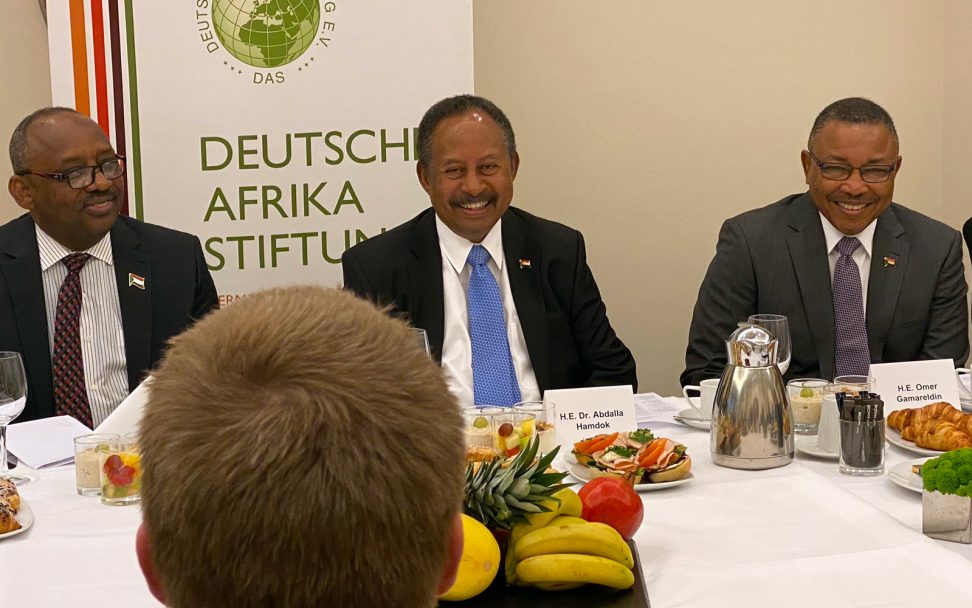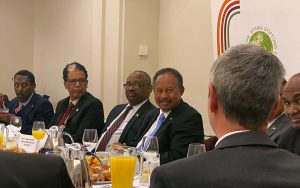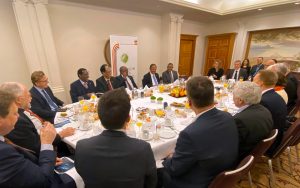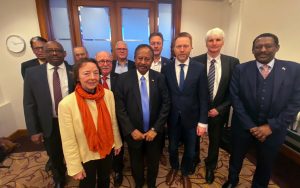After months of protests and the deposition of long-term president Omar al-Bashir, the military and civil society in Sudan agreed to form a joint transitional government headed by Prime Minister Dr Abdalla Hamdok in August 2019.
On the occasion of the Munich Security Conference, Hamdok came to Berlin for a meeting with Chancellor Merkel on 14 February 2020. The day before, the German Bundestag had approved the resumption of development cooperation with Sudan after it had been suspended for 30 years.
In this context, the German Africa Foundation invited Members of the German Bundestag as well as political decision makers from the Federal Foreign Office and the Federal Ministry for Economic Cooperation and Development and representatives of political foundations to a breakfast meeting with Prime Minister Hamdok. During this meeting, Hamdok emphasised the necessity of continuing the transformation in his country. His primary concern was to end the war in Sudan. Furthermore, improving the economic situation of all people in Sudan was of vital importance to him.
He stressed that a harmonious partnership between the military and civil society and the recognition of the country’s diversity were fundamental to Sudan’s future. This would include freedom of religion. The Christian churches in Sudan were also free now, he added.
Hamdok pointed to the high number of internally displaced persons in Sudan and the omnipresent effects of climate change. He underlined that Sudan, with the Sahel and the countries of the Horn of Africa, continues to be surrounded by a number of trouble spots. Sudan wants to engage in a foreign policy dialogue with all its neighbours. This would particularly apply to Southern Sudan. It was no coincidence that his first trip as prime minister took him to the southern Sudanese capital Juba.
Hamdok asked Germany and the international community to continue to provide strong support for the transformation process in Sudan.



